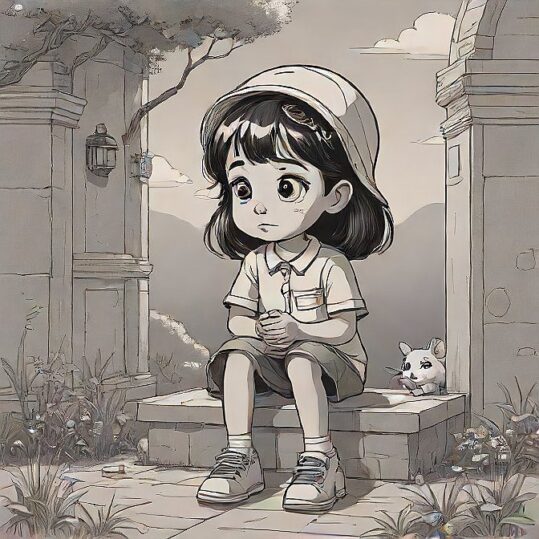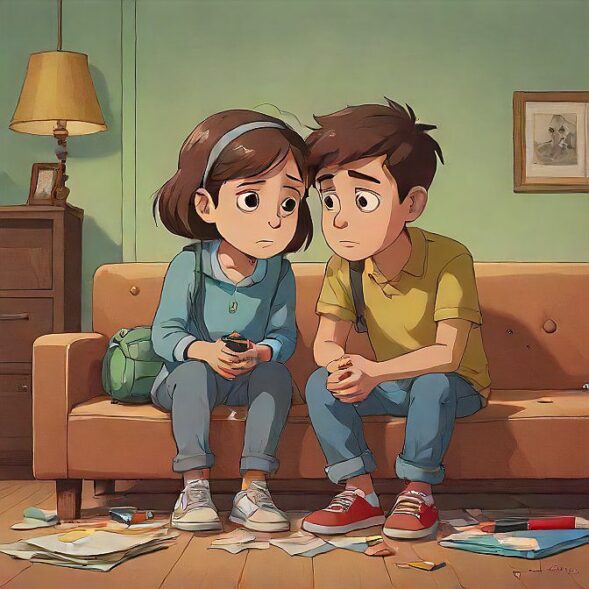The Idea That Love is Enough is Dumb
Ever heard of the old saying “love conquers all”?. Yeah, it’s naive and terrible.
From billion-dollar rom-com movies to social media life, we’re drowned in a false romantic propaganda.
“You just fall in love and everything will work itself out!”
How many times have you heard this?
Good luck with that!
If that was really true, why do we see so many dysfunctional relationships then?
Around 41% of first marriages end in divorce, 60% for second marriages, and 73% of third marriages.
So much for the idea of a soulmate ha?!
And while we’re at it, there’s no such thing as a soulmate but that’s a story for another day.
You see, the inconvenient truth is that love alone is barely enough for a healthy, sustainable partnership.
Consider these two examples:
Dr. Dre was head-over-heels in love with his former fiancée Michelle in the 90s.
He was so in love so much so he shamelessly professed his endless devotion for her in many of his hit songs.
Yet he’s also infamously admitted to brutally abusing her on multiple occasions.
One incident ruptured her lip so severely she ended up with 36 stitches.
Do you want a modern-day example?
Taylor Swift has been doing her share of loving/trashing her partners in many of her songs since she was a teen.
That’s quite telling about the main idea here if you ask me!
On the flip side, we have couples like Julia Louis-Dreyfus and Brad Hall.
They built a partnership of mutual understanding and respect over just chasing a romantic “spark.”
They’ve been married for over 36 years through Hollywood fame and raising children together.
In both of these examples, love and variations of respect, trust, and others are there too.
So, now you might have a question at this point:
What creates more genuine love and connection?
Why some are successful in their relationship compared to others even though love and trust are there?
Well, this post is for you to answer that with some unfiltered ideas and controversial thoughts.
Think of this as a love overhaul and an active act to not suffer in your relationship again.
So prepare to have your assumptions challenged.
Or dare I say, altered for the best leveraging behavioral science and real-life stories to guide the way.
Let’s get started.

What Happens When You Think Love is Enough
Your Partner Now is Like Baby Yoda
Putting your partner on a pedestal is such a rookie move, but we’ve all done it.
When you first start dating someone, it’s easy for you to get caught up in the exhilarating “new relationship energy”.
So you convince yourself that he is basically a god among mortals.
Here’s an experience my friend Ali had back in college that perfectly reflects this idea.
He’s ok with me to share his story here.
The story begins when he falls into this trap with a girl, let’s call her Mandy.
In those early infatuated months, he was permanently starry-eyed.
Ali would do the most basic boyfriend stuff; bring her a coffee here and there, make her a music playlist, you know the drill.
On the surface, these gestures are thoughtful and endearing for anyone to have.
Sadly, it didn’t take long for reality to kick in.
Ali wasn’t a divine deity.
He was just a guy with some great qualities but also plenty of flaws and dumb habits, like most of us.
But by that point, he put Mandy on a pedestal that was already tall enough to see from outer space.
Sometimes, Mandy was unable to call Ali, text back as promised on time, and other things
Simple, let’s say life sometimes has taken her to be busy with other matters. Which is normal.
Sadly for Ali, he felt left-out and was devastated.
“How could she drop me so easily like that after everything I did for her”? He thought.
Now, how Ali felt might resonate with how you feel or felt when you were in a similar position.
The reason is simple.
When you see someone as a superhero or treat them like gods, you’re blinding yourself to see their normal human flaws.
You miss out on seeing the real person, the one with good and bad sides, just like us.
And when reality hits (like a missed call!), it feels awful because you were expecting them to be better.
The tough truth is that you’re already setting yourself for failure if you do this.
It creates suffocating expectations on your partner that they can’t maintain forever.
And as you can imagine, Ali and Mandy love cycle didn’t flourish further after that for this reason and others.
Moral of the story?
True intimacy happens when you see your partner for his or her imperfections and ideals.
The same way they would see that in you.
You have to see them for who they are, not what you want them to be.
Once you ditch those lofty unrealistic ideals you want your partner to fulfill, the better your intimacy will be.
And idolizing your partner is not the way to go about it.
Otherwise, you risk going into limerence, and that’s way worse.
The Toxic Notion of ‘If you love me, you’ll do XYZ’
The most manipulative phrase I’ve ever heard in my opinion!
“If you love me, you’ll…” is loaded with toxic implications that can slowly corrode even your healthiest relationships.
On the surface, it may seem like an expression of wanting to feel loved by you.
But this manipulative statement is designed to control you, guilt trip you, and to mold you to act the way your partner wants you to.
Let’s think about it analytically.
That conditional “if” sets up an unhealthy transactional dynamic from the start.
It turns your love into a currency to be bargained with, rather than cultivating it healthily.
This is like saying “I’ll only love you back if you do XYZ for me”
Your love now suddenly has strings attached.
The implication is clear:
Comply with my demand(s) or your love is essentially worthless to me
“If you really loved me, you’d quit your job.”
“If you truly cared, you’d cut off your friend I don’t like.”
The examples are endless.
From a behavioral science perspective, it’s a classic tactic leveraging intermittent reinforcement.
The “you’ll…” dangles a metaphorical treat (making you feel loved).
But only if you show obedience or agree with my demands first.
The second that “if you love me…” nonsense gets uttered, you know it’s just bad.
It shatters any sense of mutual understanding or equality between you and your partner.
It’s a gross violation of trust and care.
In my view, it’s one of the most corrosive mindsets that can seep into your partnership.
A relationship simply cannot flourish when your love becomes so conditional.
Healthy relationships require ongoing communication, compromise and boundaries, not unilateral demands.
Love Doesn’t Excuse Shitty Behavior
Love is often seen as this magical force that can conquer all of your problems.
An unshakable bond that you should fight for so hard even if you endure or excuse any harmful behaviors.
But that’s a dangerous fallacy that can enable toxic relationships and dynamics between you and your partner.
The thing is, we men process emotions differently than women.
This leads to misunderstandings and an inability to resolve conflicts effectively.
As a result, this communication breakdown is a major contributor to why many relationships apart.
It’s also why you or your partner might resort to force love in this case, all while ignoring the basics like healthy communication.
This is when self-awareness and maturity are great qualities for you and your partner to have.
The painful truth is, love alone does not give you or anyone a free pass to mistreat your partner.
I’ve seen too many people, both friends and family members, trapped in this mindset.
“But I love them”.
This alone makes it easy to justify any abusive or demeaning unacceptable behavior done by your partner onto you.
Maybe it started with excusing “just” verbal outbursts when she was angry.
Or downplaying a shove here and there after apologies and claims of “I didn’t mean it.”
And before you know it, that twisted story of what is deemed acceptable in the name of love can continue a harmful cycle of hurt.
This is a classic pattern of trauma bonding from a behavioral science lens.
The temporary reconciliations and affection from your partner will make you think the relationship is going well.
This keeps you hooked while minimizing the extent of mistreatment you had.
You might rationalize this and say:
“So, She does love me, I just need to be more understanding during the bad times.”
Slowly, lines become blurred and your boundaries eroded.
Look, I get it, separating from someone you’ve bonded and shared a life with can feel terribly difficult.
Our psyches are fantastic at coming up with rationalizations to keep our connections going.
But you owe it to yourself to be brutally honest.
Does your partner love you truly the way you love them with no loops or strings attached?
Or do they only love you when convenient between outbursts?
There’s a vast difference.
Because here’s the truth:
Unconditional love should never demand you to tolerate cruelty, abuse or any toxic behavior.
This degrades your sense of self-worth, and self-awareness and self-sabotages your trust in your partner or relationships.
Endangering your physical or emotional well-being is where a hard line must be drawn.
This is regardless of how intense the of love you get.
As painful as it can be, your own health has to take the first priority over preserving that relationship.
In fact, that supposed “love” you think about is incredibly conditional and one-sided.
It’s more about exercising control over you through fear and forced forgiveness than any true unconditional care.
Behaviors always reveal the deeper truth.
You think if you just keep the love going and intense, then these issues will go away.
Love conquers all, right?!
I hate to break it to you but that’s how you deny yourself true love.
There’s courage in walking away because sometimes, that’s the highest forms of self-love.

Love Aside. Focus on These Things First
When love isn’t enough, no amount of cute selfies, shared playlists, or late-night FaceTime calls you make can fix it.
And when you understand that, you’ll soon realize that there’s more to relationships than being in love.
Practically speaking, there are 3 things to keep in mind that are responsible for sustaining a healthy relationship that outweigh love.
Love Doesn’t Mean Compatability
Here’s the thing:
You can share all the same core values, have incredible chemistry, and love someone with every fiber of your being and still be fundamentally incompatible as partners.
That harsh reality is something I’ve learned the hard way over the years.
Let me say it differently:
Just because you love each other doesn’t mean you should be together long-term.
Love alone is not enough to sustain a healthy, fulfilling relationship.
Compatibility is a whole other crucial piece of the puzzle that many overlook.
You know why?
Because we live in a culture that’s obsession with romantic fairytale narratives.
I have an old friend, let’s call her Jessica, who fell head-over-heels in love with this guy (let’s name him Tom) when they were in college.
I’m talking storybook type of love.
They can’t keep their hands off each other.
Tell everyone they are soulmates and they can’t live without each other.
That kind of love.
On the surface, it was really endearing but It was actually pretty nauseating to be around at times.
They really did seem perfect together in those youthful rose-colored glasses.
Fast forward a few months though, and the sobering reality set in hard.
While the love never faded, their visions for what they wanted out of life were worlds apart.
Jessica had this desire to keep exploring, studying abroad and relocate.
Tom, however, craved putting down permanent roots – a steady career, a house, even kids one day.
Two incredible humans madly in love, but the long-term compatibility was nonexistent.
No amount of couple’s counseling could bridge that divide in core lifestyle values and goals.
The love was real, absolutely.
But it just wasn’t enough to make up for being fundamentally different in their deepest needs and fulfillment over time.
Inevitably, they had to go their separate ways despite how agonizing it was.
I’ve seen this play out over and over again.
Partners who adore each other to the moon and back, but simply aren’t meant to be life partners in the long run.
Divergent attitudes toward finances, wildly mismatched career goals, clashing priorities around having kids or not are just a few examples.
Often these incompatibilities take the back seat in the early stages before inevitably bubbling up down the line.
So sure, that intoxicating romantic love may feel cosmic to you with your partner.
But unlike the movies, your love alone is not enough in the long run.
You need that deeper level of Being Actually Compatible with each other’s needs, values, and visions for the future too.
Otherwise, as brutal as it can feel, you may find yourself torn apart by incompatibility despite those deep feelings of love.
And we all know that is one of the main reasons why relationships fail.
The stats prove it too.
70% of straight unmarried couples break up within the first year.
What about other types of relationships?
They fall to the ground too when compatibility is absent.
Love Doesn’t Mean Sacrificing Yourself For It
Love should never require you to lose yourself entirely.
Too often, we have this myth that the ultimate expression of love you can do is to change your own identity, wants and needs for your partner’s sake.
But from a behavioral science perspective, that notion is incredibly toxic to any healthy, sustainable relationship dynamic.
At its core, sacrificing your authenticity creates a codependent cycle that erodes your self-esteem and personal autonomy.
It positions the relationship itself as the sole source of validation and creates an dysfunctional, addictive loop between you two.
You’ll do anything to avoid the of potential abandonment and emotional withdrawal from your partner.
This trauma bonding dynamic doesn’t happen overnight, but it all starts with small moves.
Small compromises to your individuality get rewarded with your partner’s conditional approval and temporary affection to you.
So you keep sacrificing bigger pieces of yourself, desperately chasing that emotional “high” you had before.
And the more you keep doing this, the more you start losing sight of your identity.
Eventually, you become shell of your former self.
You are shaped entirely now around to do certain behaviors over and over again.
Your core values, passions, and boundaries get sacrificed at the altar of “keeping the peace”.
Or in this case, keep getting the love.
That means your romantic partner slowly but surely will start dictating who you can and cannot be.
From a psychological standpoint, people do this for many reasons.
Carried trauma that instills a lack of self-worth is one reason.
Or buying into societal notions that self-sacrifice equates true love.
Regardless of the root cause, the outcome for you is invariably a slow erosion of your worth and emotional independence.
All of which will ultimately alter your attachment style and the quality of choices you make.
That’s why I challenge any conventional wisdom that true love demands total self-sacrifice.
Healthy, secure love should inspire you to be your fullest, most authentic self.
It’s not the case when you become an anxious, people-pleasing shadow just to sustain the relationship at all costs.
A partner who genuinely loves you will celebrate your personal growth and work together with you on your benign flaws.
True intimacy arises from the mutual vulnerability of showing up imperfectly as your whole selves, quirks and all.
It’s when you choose to be in each other’s lives without assimilating into a codependent, identity-sucking bond.
Because at the end of the day, what’s the point of love if you have to lose yourself entirely in order to make it work?
That’s not an act of devotion, but one of soul-demolishing self-erasure.
Love Isn’t Your Fixer
At some point, we all think that stepping in a relationship or being in love would solve our issues.
The harsh truth is that this is false and so many people struggle to accept this.
There’s a good reason for that.
We’re fed these romantic fairy tales where a magic kiss can shatter any curse or obstacle.
But in reality, no amount of affection can instantly fix your deep-rooted personal issues no matter what.
Allow me to illustrate with a story:
My friend Sarah always dreamed of finding her soulmate.
That perfect partner who would complete her and make her life feel truly whole.
When she fell head-over-heels for a man named Jake, she was convinced she’d finally found her man.
Jake was kind, supportive, and always telling Sarah how amazing she was.
For the first time, she felt unconditionally loved and with a seemingly healthy man.
So far so good, but there’s one major issue.
You see, Sarah had spent years burying her insecurities, body image struggles, and fear of not being good enough.
No matter how much Jake tried to encourage her confidence, those demons still haunted her internally.
So she projected these insecurities onto the relationship.
She started to be clingy, overly jealous, and constantly seeking Jake’s validation and attention.
Rather than addressing her self-esteem issues directly, she did something else unwillingly.
She subconsciously hoped that Jake’s love would be enough to magically compensate for her internal struggles.
If he just kept showering her with more affection and compliments, surely that inner void would disappear, right?
But human psychology simply doesn’t work that way.
Love can’t repair self-worth that was never developed in the first place.
Just like a spackle that covers any holes in the wall, Jake’s affirmations were just like that.
His words were just covering Sarah’s fractured foundation of self-acceptance and lack of self-awareness.
Sarah’s constant neediness and refusal to do the hard work of healing herself first came with a price.
No matter how much love Jake provided, those cracks eventually shattered their bond.
The cold truth to take away from this is:
While you can have an attentive, supportive and loving partner, he or she simply can’t be your fixer.
You have to take radical responsibility for your own fears, traumas and personal shortcomings.
Love doesn’t automatically solve problems like insecurity or self-sabotaging habits.
It can only create a safe space for you to courageously unpack and address them.
That’s why pinning your hopes on romantic love for your inner turmoil is just misguided and bound to fail.
Your partner isn’t a superhero who can simply vanquish all your psychological demons by the strength of their endearments alone.
It’s very selfish and unhealthy to even expect your partner to fill that role or even fix that for you to be honest.
You shouldn’t treat yourself as a DIY project that’s waiting to be assembled by someone else.
Real intimacy requires you and your partner to be whole and mature, showing up as vulnerable works-in-progress.
Otherwise, you inevitably will turn your partner into an unfortunate surrogate for your unresolved issues.
And no amount of love, care, or affection can ever heal you.
Appreciate your partner, but avoid idealizing them as a magical fix-all without being willing to prioritize your own personal development first.
Love can inspire and encourage that journey tremendously.
Yet it cannot circumvent your responsibility to address your problems head-on with or without its presence.
That vital inner work will always be required by you to thrive my friend.
And until then, it’s just better to stay away from dating or any other involvements.
Because you’re trying to heal and understand yourself and values first.
And that’s a top priority that later will help you make a better partner and a healthier individual.

Love is Emotional. Healthy Relationships Are Logical
The butterflies of new love fade, but real relationships take work to truly soar.
In those early infatuation days, it’s easy to be lured by what you attract.
Those flawless first impressions and intoxicating highs when your partner seems to do no wrong.
Yeah, you will always find an excuse for that.
They sloppily drink milk straight from the carton?
“How charmingly quirky!”
They forget yet another important date?
“Oops, there goes my adorably absent-minded partner!”
We’ve all been there, drunk on the love potions of lust and projection.
So we overlooked his or her flaws that we’ll inevitably loathe down the road.
That initial heat you feel will cool into cozy coals eventually.
It’s just the reality of it and no amount of wearing our best behavior while ignoring deep flaws will be the key to sustaining a relationship.
If I can just say it bluntly, sustainable partnerships grow from really nurturing true emotional intimacy and doing the basic stuff for a very long time.
Stuff like shared values, respectful communication, problem-solving attitude, not a shame-based talk, and the ability to apologize and compromise.
These form the backbone of a lasting relationship.
Love comes from committing to healthy partner who has a similar outlook on this stuff roughly speaking.
Because conflicts and disappointing realities are utterly inevitable once those infatuation-blinders inevitably fall off.
Real love means you and your partner must embrace the messiness of your imperfections and figuring it out together.
Strong relationships stand strong by valuing radical honesty and growth over flowery, unrealistic fantasies.
Here’s the thing:
If your best friend projected a flaw similar to what your partner is projecting, would you cut them off?
Keep this in mind!
Love survives hard realities by reinforcing that unshakable foundation of trust.
And that trust comes from working through changes, disappointments, and downtimes together for the sake of the relationship.
So by all means, experience the invigorating highs of serotonin and oxytocin that come with new relationships.
Just never lose sight of who you are, what you’re looking for, and what you’re unwilling to accept.
That’s a sign of a healthy adult.
It will make you irreplaceable and a mate of high caliber.
Not everyone is meant to be in your life, nor should you be in theirs.
After the butterflies migrate, that’s where the real magic of a relationship starts.
If you’re both healthy and mature, then you’ll have the best relationship ever.
Otherwise, if you’re trying to fix each other and not putting the relationship first, well I don’t need to tell what would happen!
Thanks for reading!
What does love mean to you?
I’d love to hear your thoughts and your ideas about this post 🙂
Until next time.



